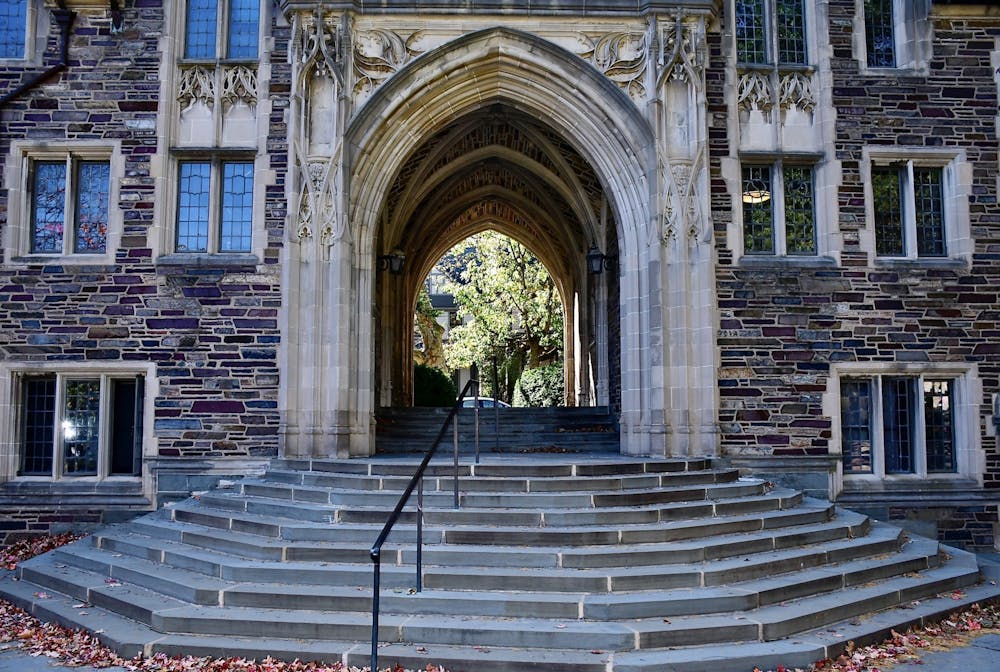Editor’s Note: This piece ran in The Daily Princetonian’s Nov. 2020 print issue.
When I attend class these days, I keep my laptop pointed towards the window, for fear that a dirty sock or my unmade bed might slip into view. I join a few minutes late, opening Zoom as I scarf down an 11 a.m. “breakfast” or clear my desk, which has been buried beneath an avalanche of sticky notes, books, and empty bowls since March.
Such is college without campus. In a column printed here, David Palomino reminds us that we never even bid Princeton a proper farewell. “We left with little warning,” he writes. “Goodbyes were too rushed, too hard, and too scarce.”
In two letters that accompanied this semester’s previous print issues, I wondered what makes virtual college meaningful and asked how we should navigate the nation’s crosshairs. This issue, I believe, gives rise to another question: Does sustaining community require that we share a common campus?
The answer, the pieces collected here suggest, is a resounding no, even as nine homebound months reveal just how much we rely on — and will always need — our campus.
In 1996, Toni Morrison delivered a stirring address, “The Place of the Idea; The Idea of the Place,” to mark Princeton’s 250th anniversary. She speculated what Princeton might become by 2246, five hundred years after its founding.
“Will gates again be locked? Will the mission have stumbled because the constituency has changed? Will instruction be executed solely in solitude by the isolated handling of sophisticated new machines?” she asked.
In less than a quarter-century, Morrison’s last prediction has come to pass. As we await Princeton’s spring-semester decision (which we may very well know by the time you receive this issue), we can be sure that “sophisticated new machines” will remain part, if not all, of our education.

Yet, for everything COVID-19 has taken, student communities remain vital. Princeton’s gates are still unlocked; our mission, clear.
In Features and The Prospect, you’ll discover that first-year students have forged friendships with peers they’ve never met in person. In Sports, you’ll hear how teammates have come together, though they may not face a single opponent this year. You’ll learn how bonds of friendship convinced running back Collin Eaddy ’22 and his teammates to embark on gap years.
Earlier this semester, dozens of students gave their all to register poll workers and elect candidates who inspired them. Student-athletes discussed politics with their teammates, holding one another accountable to vote. We share their experiences here.
In The Prospect, we chronicle how student arts groups and guest performers have adapted online. The section includes reviews of Songline Slam Poetry’s Newbie Arch, whose participants pioneered “a new way to slam,” and students’ annual Halloween rendition of “The Rocky Horror Picture Show.”

In News, you’ll read how Princeton Mutual Aid, a community network founded in the pandemic’s wake, convened town residents to tell stories and raise funds. In the face of social barriers, you’ll become familiar with the online platforms that first-year students have used to meet each other.
But fostering community is not to be done uncritically. To the contrary, we’re responsible for the shape our community takes.
In the same speech, Morrison suggested that social activism could protect Princeton from the threats she feared. Rather than locked gates, errant missions, and impersonal machines, she urged the University to “[r]evel in the fact that its taproot was fed by the waters of civil dissent, has been nurtured by sound learning and respect for heterogeneous discourses on the dominant philosophical views of the world.”
That dissenting vein imbues this issue. In Opinion, Claudia Frykberg contends that Princeton has failed to support student-athletes, particularly women, “in a year when our program is celebrating a major half-century milestone” — coeducation. Brittani Telfair argues that “uncivil acts,” which degrade students of color, have no place in our community.
Won-Jae Chang, who lives in South Korea, calls on the University to demonstrate support for international students, whose differences in time zone result in enormous challenges. Anticipating our eventual return to campus, Elijah Benson urges Nassau Hall to create more spaces that celebrate students of marginalized identities.
Whether we reside in dorms or our childhood bedrooms, this work continues. Likewise, community endures, even when we’re far from Princeton. On the day we finally return to campus, let’s not forget that.
Jonathan Ort is editor-in-chief of The Daily Princetonian. He can be reached at eic@dailyprincetonian.com and on Twitter at @ort_jon.








